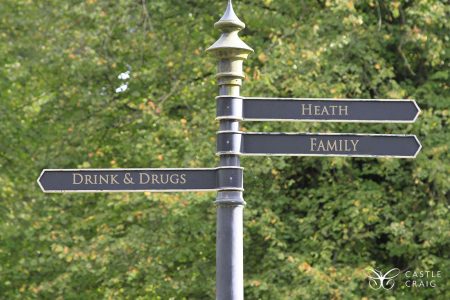What if we told you…
Not drinking in January has health benefits for the rest of the year? Yes, it’s true! Granted, for some of us, avoiding alcohol on January 1st is easy since we are recovering from the previous night’s celebratory toasts… but if you continue that trend for another 30 days, you can see physiological, psychological, and even emotional benefits into February and beyond. On average those who participate in Dry January go on to drink less frequently and in smaller quantities throughout the course of the year.
Rehab Costs & Options for Alcohol | Drugs | Other addictions
A month of temperance really can help your health for the next 11 months. Clearly, Dry January is a good and healthy choice. So, who can we attribute this great idea to? While its origins are a bit fuzzy, with Alcohol Change UK, the British Liver Trust, Public Health England and other public health organisations recognising its benefits to start the year off right, it is a tradition here to stay.
What is Dry January?
Dry January is a public health campaign that is believed to have started in the mid-2010s in the United Kingdom. The idea of Dry January is to encourage people to abstain from alcohol for one month, with the hope that they’ll experience the mental and physical benefits of not drinking.
The first government-sponsored campaign in the U.K. was in 2017, and since then it has been gaining popularity. In 2014, more than 17,000 people participated in Dry January, according to U.K.-based marketing magazine CampaignLive.
Five years later, an estimated 4.2 million people had taken the Dry January pledge in the U.K., according to British Liver Trust (which they based on survey results from yougov.co.uk that suggests 8% of the British population indicated they’d participate in Dry January).
Benefits of Dry January
We have documented alcohol’s short-term effects on memory and liver disease that is associated with alcohol consumption. Additionally, alcohol misuse, or over-use can negatively impact relationships, and it can lead to other health risks including infertility, cancer, depression, brain damage and foetal alcohol syndrome.
People who participate in Dry January do it for a number of reasons, whether they’re once or twice a week social drinkers or daily drinkers who may be concerned that they’ve got a problem with alcoholism. It doesn’t matter what your reason is for exploring Dry January — the benefits are numerous. Researchers from DryJanuary.org.uk and University of Sussex surveyed Dry January participants and found:
- 88% said they saved money by participating in Dry January;
- 71% said they slept better;
- 58% reported having lost weight;
- Drinking days decreased from 4.3 per week to 3.3 per week; and
- Units consumed decreased from 8.6 to 7.1 per day
Of course, you don’t have to wait until January to take a month off from drinking alcohol. Research has shown that people who take a month off to reset their relationship with alcohol experience many benefits, including:
- They realise that alcohol isn’t a requirement for having fun, and some reported that they thought more deeply about why they drink.
- Some said they made better decisions about drinking throughout the year.
- Participants also said they could concentrate better.
Even with all the facts that support the benefits of Dry January, for those of us who have a close relationship with alcohol — it’s part of our everyday lives, after all — taking a month off from alcohol is not easy.
Our experts have compiled a list of tips that have helped people get through a Dry January.
Tips for a Successful Dry January
The point of Dry January is not to punish yourself for your drinking habits. It is intended to be a positive experience so you can see the benefits of being sober. With that in mind, here are some tips that aim to help you make Dry January a success.
- Use technology: Alcohol Change UK offers a free app called Try Dry: The Dry January App, which works on both Android and Apple mobile devices. The app helps you track your drinking, calories and money saved, plus you can set goals, earn badges and subscribe to support messages to encourage your sobriety.
- Clean house: To remove temptation from your home, remove all alcohol from your shelves. Throw it away, or ask a trusted friend to hold onto it for you and, under no circumstances, return it to you until you’ve passed your 31-day mark for Dry January.
- Find substitute beverages: You may want to come up with some beverages that will quench your thirst while you enjoy a Dry January. Look for tasty alternatives to your favourite drinks — alcohol-free beers and wines, virgin cocktails or a simple lime and soda.
- Create a sober support group: You don’t have to entirely cut yourself off from your friends, family and favourite locals. You may want to let them know you’re taking a month off from alcohol — and invite them to join you. There is strength in numbers. You might create a small WhatsApp group so you can send each other daily words of encouragement or reach out when temptation strikes.
- Save the cash: How much on average do you spend per day or per week on alcohol? Take that amount and stash the cash in a jar or box. Watch it grow daily. At the end of your Dry January, treat yourself, or, even better, donate it to your favourite cause.
- Get busy: Make a to-do list with things you’ve been putting off, like your DIY to-do list. Projects to keep yourself busy during your Dry January are great ways to keep your mind busy and distracted.
Life After Dry January
Alcoholics Anonymous introduced the concept of “dry drunk” to refer to a person who stops drinking but continues the behaviour patterns and attitude they had when they were an actively drinking alcoholic.
The phenomenon is likely to happen when someone stops drinking and doesn’t seek help or aftercare to transition from a life filled with alcohol to a sober one.
For more information on therapies to treat alcohol addiction, explore our addiction therapy resources. You may also contact one of our 24-hour help-line specialists at +44-844-740-1394 or by emailing info@castlecraig.co.uk.



